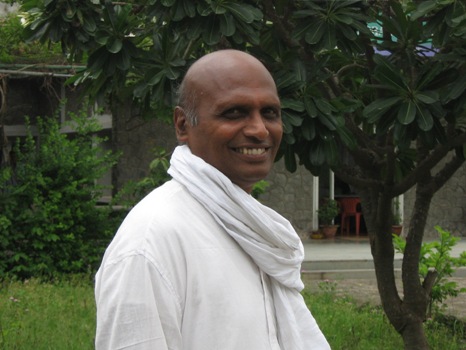People and Organisations
Sevabharati Karnataka - Information on the organisation
Posted on 27 Oct, 2009 05:37 PMSevabharati Karnataka is one of the organisations working on relief work. They are planning to build 2349 homes at a cost of Rs. 1 Lakh each in 19 villages across 7 affected districts. More information is available at their site:
http://www.sevabharatikarnataka.org
Groundwater Foundation: Benefits of being a groundwater guardian community
Posted on 26 Aug, 2009 02:28 PMHow can citizens or NGOs initiate a movement at the local level for the protection of groundwater?
Groundwater Foundation is a non-profit organization dedicated to educating and motivating people to care for and about groundwater.
Sustainable sanitation for all: The GTZ ecosan programme
Posted on 26 Aug, 2009 11:39 AMThe GTZ Ecosan Program has developed guidelines for safe reuse of urine and feces, and publicity material to create awareness on the functioning of eco-toilets.
Megh Pyne Abhiyan: An initiative to promote rainwater harvesting to provide safe drinking water during floods
Posted on 21 Aug, 2009 12:15 PMMegh Pyne Abhiyan - Baadh prabhavit sthalon mein varsha jal sangrahan
Read more about the effort in Hindi
Rashtrita Jal Chetna Yatra: Efforts of Tarun Bharat Sangh and Rajendar Singh in addressing water related concerns across the country
Posted on 20 Aug, 2009 02:20 PMTarun Bharat Sangh and Rajendar Singh started a massive campaign to spread awareness of traditional water harvesting structures in order to restore the water resources of arid Rajasthan. The aim was to popularize the use of such traditional structures across the country.
Information about Jalanidhi: A World Bank-assisted Kerala Rural Water Supply and Sanitation Project
Posted on 13 Aug, 2009 04:04 PMJalanidhi is the website of the Kerala Rural Water Supply and Sanitation Agency which implements "Jalanidhi", a World Bank-assisted "Kerala Rural Water Supply and Sanitation Project" for sustained delivery of adequate quantity of water and sanitation services in rural areas in four districts of Kerala.
The Baitarani river basin project in Orissa: A civil society initiative to explore options for futuristic resources management in the river basin
Posted on 12 Aug, 2009 05:06 PMBaitarani River Basin Project is a civil society initiative to proactively explore options for futuristic resources management in this river basin. It also attempts to blend concerns for environment with livelihood, goals of local with global development, issues of rights with market and focus of sustainability with equity.
Megh Pyne Abhiyan: Popularizing rooftop rainwater harvesting in North Bihar
Posted on 07 Aug, 2009 09:14 AMArghyam has supported a Campaign for popularizing Rooftop Rainwater Harvesting (RWH) in a flood prone region in North Bihar. The second phase of the Abhiyan has been designed based on the experiences from the first phase.
Transfer of power to rural communities : Initiative by Sambhav Trust
Posted on 29 Jul, 2009 01:29 PMThis article is about an experiment taken up by Sambhaav Trust with communities in Barmer (district of Rajasthan), which tells us about the development of the rural area and how to bring about self sustainability to rural society. Readers may kindly write in with their feedback in the comments or to portal@arghyam.org. Comments & emails will be forwarded to Sambhaav Trust by the India Water Portal.
Introduction
The word rural is synonymous with backwardness in the eyes of the upper urban community. A general impression that has been created is that people living in rural areas are economically poor, uneducated, do not have any sense of business, are not hardworking and hence they are much below those who live in urban areas who are monetarily rich. This perception is a biased one. We have never asked ourselves - what are the indicators that make a man backward or advanced? We have measured everything in terms of monetary advancement. In our experience there are a number of indicators one can associate with development like social, political, value system etc. It is therefore important that we check our perception before we talk of rural development. We are not debating on the urban-rural divide. However, from our experience in the rural field we believe that if we are interested in national development and not just sectoral development, then it is essential to assess the potentiality of the rural sector to move forward. Our contention is that this potentiality has not been probed into. On the contrary, a policy to downgrade this sector continues year after year. We have to broaden our perception if we truly want a just state.
